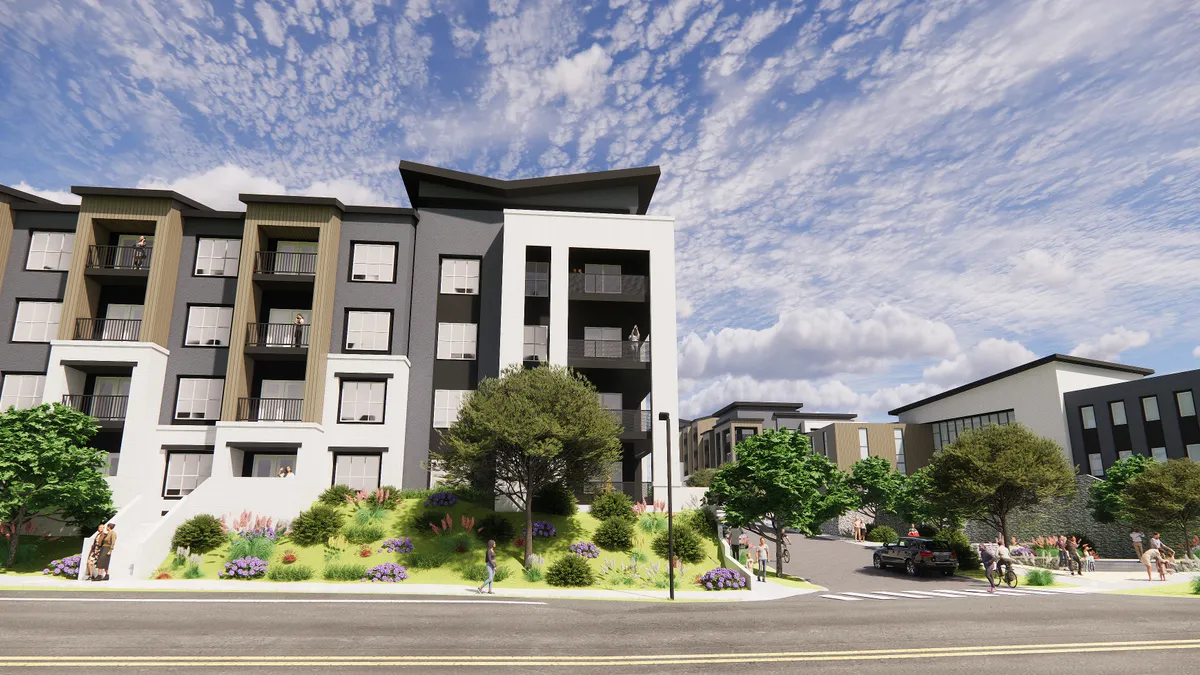Last month, Dallas-based JPI and Seattle-based real estate investor Pinnacle Partners announced the launch of a $200 million workforce housing fund to develop mixed-income communities with a restricted rent component.
JPI Chief Financial and Investment Officer Mollie Fadule told Multifamily Dive that the firm had been working on the fund — its first commingled vehicle for workforce housing — for the past three years, but the timing had not been right until now.
“We felt interest rates have started to come down, the debt markets have been more attractive for the projects and investor sentiment has improved over the last six months,” Fadule said. “We felt momentum in the market from a fundraising standpoint, and so felt like it was the right time to launch.”
With a nationwide shortage of workforce and affordable housing, JPI thinks there is a significant opportunity for impact investment.
“If you look at the number of housing starts per 1,000 households in the U.S. dating back from 1960 to now, we went [down] from the average of 22.2 housing starts per 1,000 households from 1960 to 1990,” Fadule said. “We were at 11.8 from 1990 to 2024. So what you've seen is just less new supply of housing in our country, which has created a very large imbalance.”
Seed assets
Initially, JPI will include four projects located in Texas, California and Washington in the fund due to the thriving economies and the need for essential housing in those states.
“We're a very active builder in both Texas and California, where we think the supply-demand story and job growth is attractive, as well as just the need for housing being huge,” Fadule said.
“And then we're constantly evaluating opportunities in other markets.”
The fund currently consists of the following developments:
- A 415-unit development in Denton, Texas.
- A 393-unit development in McKinney, Texas.
- A 295-unit, four-story garden-style community in Oceanside, California.
- A 224-unit, eight-story podium-style development in Redmond, Washington.
“We were able to tie up the deal in Redmond, right by the Microsoft campus,” Fadule said. “So we thought that that was a good diversification into the fund.”
Cost-saving practices
Although these workforce projects may not have the upscale amenity spaces of some of JPI’s luxury properties, their unit finishes and layouts and general amenities will meet the same standard as the developer’s other projects, according to Fadule.
“We have worked very tirelessly around cost and schedule control,” Fadule said. “So we have invested a pretty significant amount of capital in the technology infrastructure. We use fully digital design, and we've linked that with our pre-construction software.”
In addition, JPI works with the construction team to find ways to be efficient in scheduling, according to Fadule.
“There’s a cost associated with that,” Fadule said. “So we've really spent a lot of time and money investing in digital tools to be able to better plan and then better execute our projects, which we have been able to find time and cost savings on.”
Click here to sign up to receive multifamily and apartment news like this article in your inbox every weekday.











